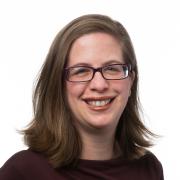New Column in Young Children: Innovations in Higher Education

You are here
In its quest to promote high-quality early learning for all children, NAEYC’s focus has always been twofold: on the education and care of young children and on the professionals engaged in this essential work. This dual focus has been woven throughout its mission, initiatives, and products. Therefore, we are excited to announce a new column in Young Children called Innovations in Higher Education.
From the Beginning: A Dedication to Preparation
From the beginning, NAEYC has attended to critical topics related to practice and the preparation of the early childhood education (ECE) profession, including in its periodicals. For example, in 1945, the first issue of the Bulletin of the National Association for Nursery Education (a predecessor of Young Children) announced the Committee on the Preparation of Teachers for Nursery Education in Public School Programs. This new committee was established because of a pressing teacher shortage and questions about teacher preparation at that time. The committee’s charge included addressing
- The nature of the nursery school in the future.
- The problem of recruitment.
- The type of teacher education necessary to develop the right kind of individuals needed in nursery schools.
- What a nursery school teacher does and what are some of the ways in which a student can get the training to do these things effectively. (8)
While these problems resonate with the current education landscape, great strides have been made. NAEYC has contributed to these advances by
- holding the profession’s consensus standards on what early childhood educators should know and be able to do. These standards—previously known as NAEYC’s “Professional Preparation Program Standards” and currently called NAEYC’s “Professional Standards and Competencies for Early Childhood Educators”—have deeply influenced the content in ECE higher education programs over the decades.
- setting the standards for quality professional preparation as well as recognizing and accrediting programs for meeting those standards through our ongoing work as a stand-alone accreditor of ECE degree programs. NAEYC also maintained a decades-long partnership with the Council for the Accreditation of Educator Preparation (CAEP; previously the National Council for Accreditation of Teacher Education, or NCATE) through which we recognized baccalaureate and graduate degree programs in early childhood education.
- working with 14 other national early childhood organizations on behalf of the ECE field to create the Unifying Framework for the Early Childhood Education Profession. This unprecedented initiative and subsequent document elevates higher education and the ECE professional preparation programs within it as central to building an effective and diverse ECE workforce. The higher education recommendations within the framework serve as guideposts for how NAEYC connects to and supports higher education programs focused on early childhood education.
Continued Commitment: Addressing Pressing Questions and Issues
Grounded in these accomplishments, we introduce the new column. Innovations in Higher Education aims to recognize and support the efforts of teacher educators, program coordinators and chairs, mentor teachers, clinical supervisors, and early learning program staff who prepare early childhood professionals. Elevating the successes and persistent challenges of the systems and people who prepare early childhood educators will expand our collective understanding of a vast and varied ECE higher education landscape, which is essential to the health and welfare of our ECE workforce. This landscape includes over 2,500 ECE degree programs across the country that represent a multitude of contexts—from associate to doctoral degree programs; in rural, suburban, and urban communities; in programs with very small enrollment (10 students or less) and very large programs (300 students or more); in programs that serve students from historically marginalized communities and students whose home languages are not English; programs that are solely online; and much more. This column is also a way for NAEYC to recognize and create an additional resource for its many members who identify as faculty or other personnel within higher education.
The column will be coedited by two outstanding members of the early childhood education field and NAEYC:
- Anthony Broughton, PhD, is an award-winning educator and the associate dean and associate professor of education at Alabama State University. Dr. Broughton served on NAEYC’s Governing Board and has taught in elementary schools, child care centers, and educational settings in higher education. His research interests focus on culturally relevant pedagogy, Black children, diversity, critical literacy, and Black men in education.
- Elisa Huss-Hage, MEd, is director of early childhood education at HOPE Toledo, a nonprofit dedicated to assuring accessible, affordable, high-quality education for 4-year-olds in Toledo, Ohio. Previously, Huss-Hage was a faculty member for 25 years in the Department of Teacher Education and Human Services at Owens Community College in Ohio. She has served on NAEYC’s Higher Education Commission, the NAEYC Governing Board, and as a NAEYC accreditation program peer reviewer.
The coeditors kick off Innovations in Higher Education with a piece about the change that is needed to advance equity in the field. They outline why change is needed and how higher education programs can take steps to enact it. Their piece showcases what is to come.
Innovations in Higher Education will include stories from the field, connections to theory and research, and recommendations for practices related to coursework, clinical experiences, and professionalism. It will be anchored in NAEYC’s foundational documents, including the position statements on professional standards and competencies, developmentally appropriate practice, and advancing equity. While this focus is not new to NAEYC, we are thrilled to have a column dedicated to early childhood educator professional preparation in the pages of Young Children.
—Annie Moses, YC Editor in Chief, with Mary Harrill, Senior Director, Higher Education
Annie Moses, PhD, is director of periodicals at NAEYC and serves as editor in chief of Young Children and Teaching Young Children.

Mary Harrill is Senior Director of Higher Education Accreditation and Program Support at NAEYC.
